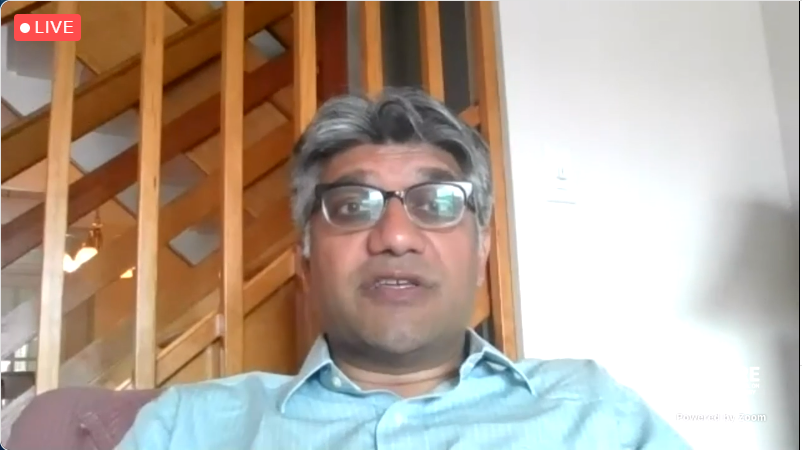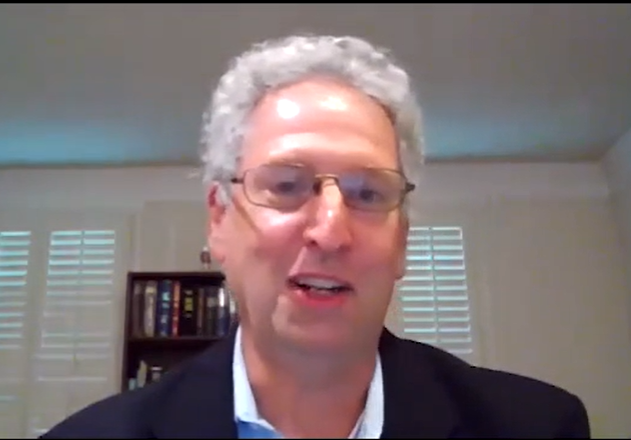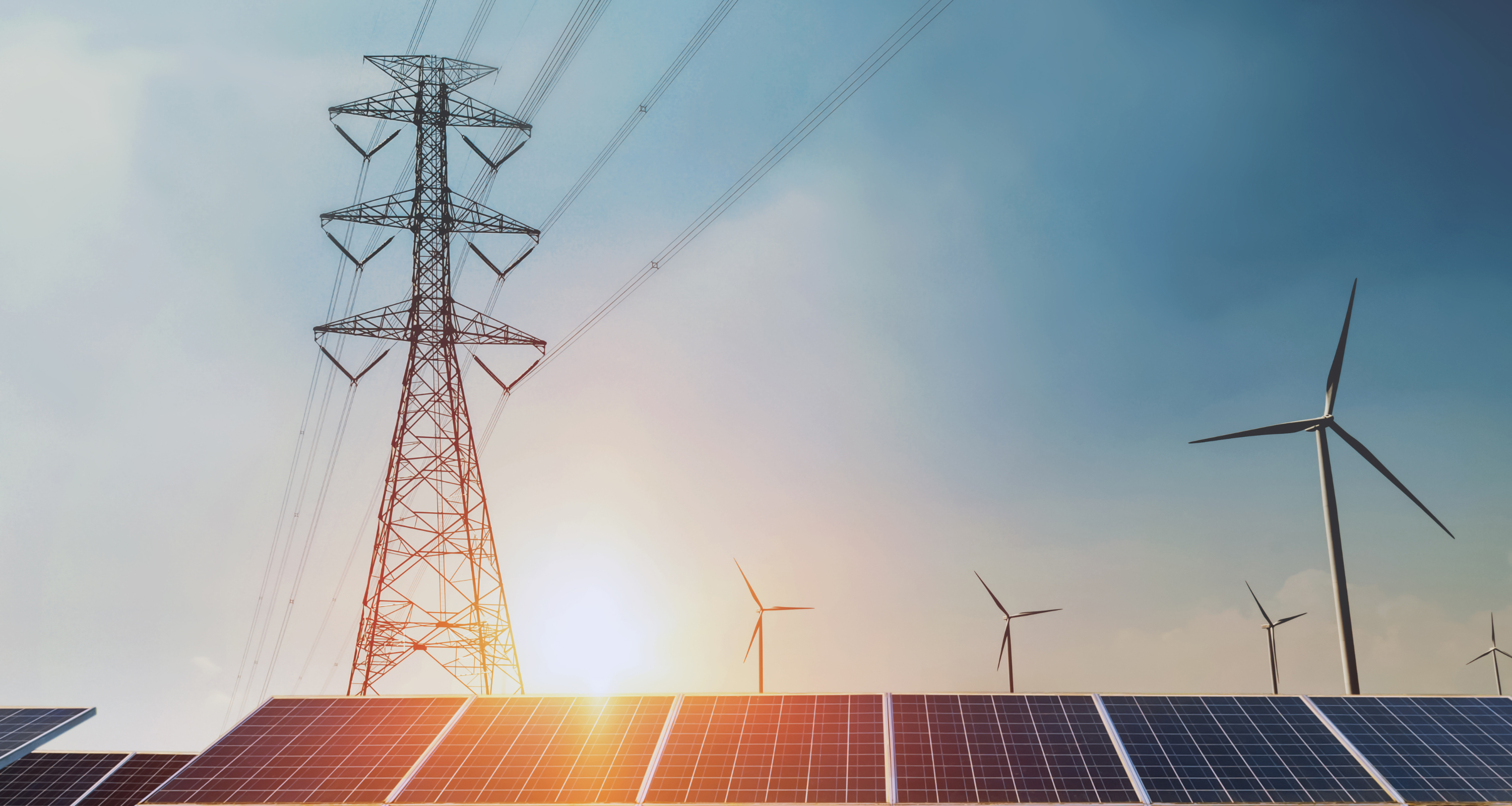- Grid Infrastructure
- Just Transition
- Project Finance
- Sustainable Investing & ESG
- Tax Incentives & Appropriations
- Blog
ACORE Finance Forum Looks Ahead to Post-COVID Renewable Energy Transaction Landscape
By Maheen Ahmad and Blake McCarren
July 1, 2021
As the new administration launches ambitious plans to confront the climate crisis, corporate sustainability efforts are surging to scale up investment in our clean energy future. In this exciting moment for the renewable energy sector, the American Council on Renewable Energy (ACORE) proudly hosted the ACORE Finance Forum on June 15-16. Attended virtually by over 330 participants, the Finance Forum convened experts from across the renewable energy marketplace, including the sector’s largest and most influential investors, developers, utilities, manufacturers, advisors, and buyers to offer their insights on the next stage of renewable energy finance and investment in the aftermath of the global pandemic.
Federal Policy, Tax Credit Extensions and “Building Back Better”
The 2021 ACORE Finance Forum was set against the backdrop of ongoing negotiations on a massive federal infrastructure package. President Biden followed up his campaign trail pledge to “Build Back Better” by releasing the American Jobs Plan, a proposal intended to capitalize on a once-in-a-generation opportunity to repair our nation’s crumbling infrastructure while enacting comprehensive, science-driven climate and clean energy policies. The conference featured panelists from the White House, U.S. House of Representatives, and U.S. Senate as the federal agenda for clean energy and climate takes shape. There was broad agreement on the need for a whole-of-government approach to accelerate the clean energy transition, and a recognition that stable, long-term tax policies were among the most effective policy tools available to increase renewable energy deployment. Policymakers clearly see this year as a huge opportunity to make transformative investments in our infrastructure in response to the looming threat of climate change. Speakers discussed possible extensions of existing tax credits for renewable energy generation, as well as proposals for new standalone credits for energy storage and high-voltage transmission. There was also a productive conversation about ways to ensure that the benefits of clean energy incentives are felt by all Americans, particularly those in disadvantaged communities.
Capital Flows
The ACORE Finance Forum brought leading investors and project sponsors together to discuss deal flow, tax equity, and the cost of capital in this significant moment for renewable energy investment. Kicking off the conversation, ACORE’s new $1T 2030 report, Expectations for Renewable Energy Finance in 2021-2024, found that investor confidence in the renewable energy and energy storage sectors is at an all-time high.
Investors and sponsors were generally in agreement that the tax equity market has improved after a challenging year in 2020. However, persistent issues securing tax equity financing have resulted in project delays, while some smaller projects have had difficulties receiving financing altogether. Investors emphasized the importance of direct pay in absorbing the backlog demand for tax equity and reducing the need for a third-party tax equity investor in project deals.
A group of investment bankers noted an increase in debt financing in most renewable technology sectors, particularly in energy storage and residential solar. Multiple lenders stated they anticipate growth in distributed generation as a means of meeting state-level renewable energy targets.
The past year has also brought new funding opportunities to climate technologies beyond wind and solar – such as e-mobility, hydrogen, renewable gas and energy storage – through Special Purpose Acquisition Companies (SPACs) and other innovative public and private corporate financing arrangements. Capital flows in this space are expected to ramp up substantially with efforts to achieve deeper decarbonization scenarios.
Motivated Private Capital: ESG Investing and the Just Transition
The issuance of green bonds and inflows into sustainable funds has soared over the past year. This upward trend in Environmental, Social and Governance (ESG) investment is driven by both investor and corporate interest, with financial institutions aiming to divest from fossil fuels and corporations increasingly setting climate targets. ACORE Finance Forum speakers discussed how this influx of capital is benefiting the renewable energy sector. Regarding standardization of ESG disclosure metrics, panelists expressed support for implementing the Task Force on Climate-related Financial Disclosures (TCFD) recommendations, the Sustainability Accounting Standards Board (SASB) Standards for sector-specific metrics and expanding the disclosure of Scope 3 emissions.
In addition to climate-centered metrics, panelists also highlighted the importance of human-centered metrics in ESG investment, such as diversity and inclusion, the social impacts of renewable energy deployment, and supply chain labor practices.
Banks and members of ACORE’s Accelerate membership program discussed methods for securing equitable access to capital as part of a just transition to a clean energy economy. Participants emphasized that a just transition includes renewable energy deployment that is both driven by, and beneficial to, local communities. Speakers examined how banks could identify meaningful investments and expand the diversity of their networks. They also addressed how residents in disadvantaged areas can own such projects and lead local workforce training. The hope is that the wealth generated from such projects will flow back to these communities.
Grid Resilience and the Role of Hedges after ERCOT’s Winter Crisis
The ACORE Finance Forum featured perspectives on the potential impacts of the Texas power outages in February on financing projects and the urgent need for infrastructure improvements. Panelists focused on the need for weatherization, a buildout of interregional transmission, and the deployment of a diverse mix of clean energy resources as long-term solutions for enhancing grid resilience.
Speakers also discussed the impact of the Texas outages on hedge arrangements in ERCOT and other markets. They discussed how the sector is adapting to challenges for corporate virtual power purchase agreements and merchant renewables, and some investors commented that they are prioritizing other financing structures in place of fixed-shape hedges. Panelists also called for reforming risk assessments to account for scenarios in which power is not being produced.
Keynote Discussions with Policymakers
ACORE Finance Forum attendees heard from keynote speaker Jigar Shah, who serves as the Executive Director of the U.S. Department of Energy’s Loan Programs Office. Shah discussed his efforts to revamp the Loan Programs Office, which had been largely dormant for the last several years. The Office is now accepting loan applications for a wide variety of projects, including offshore wind, transmission, critical minerals, biofuels, geothermal, hydropower and battery technology. Under Shah’s leadership, the Office has significantly expanded its outreach team, which has already led to billions of dollars’ in applications received in the early months of the Biden administration. Shah had an informative conversation with ACORE President and CEO Gregory Wetstone about the need for stakeholders across the renewable energy landscape to refocus on transmission expansion and prioritize projects that can be built relatively quickly along existing rights of way.

The Honorable Richard Glick, Chairman of the Federal Energy Regulatory Commission (FERC), offered wide-ranging keynote remarks on Day 2 of the ACORE Finance Forum. Chairman Glick spoke at length about the heightened focus on transmission expansion to unlock more renewable resources as FERC prepares to unveil a “roadmap” for transmission later this year. Chairman Glick also discussed the benefits of interregional transmission, noting that connections to PJM improved the reliability of MISO and SPP compared to ERCOT during the extreme winter storms in February. The conversation also covered energy storage projects, carbon pricing and grid enhancing technologies.

On behalf of the entire ACORE team, thank you to all who were able to attend the 2021 ACORE Finance Forum. Those who registered for the conference but did not get a chance to attend all of the sessions can watch the program on our conference hub until July 16. Those who missed the chance to register and would like to access the content can reach out to events@acore.org to inquire about purchasing a post-event pass.
Join leaders from across the clean energy sector.

What will our next 20 years look like? Here’s the truth: they’ll be better with ACORE at the forefront of energy policy.
Shannon Kellogg
Amazon Web Services (AWS)
